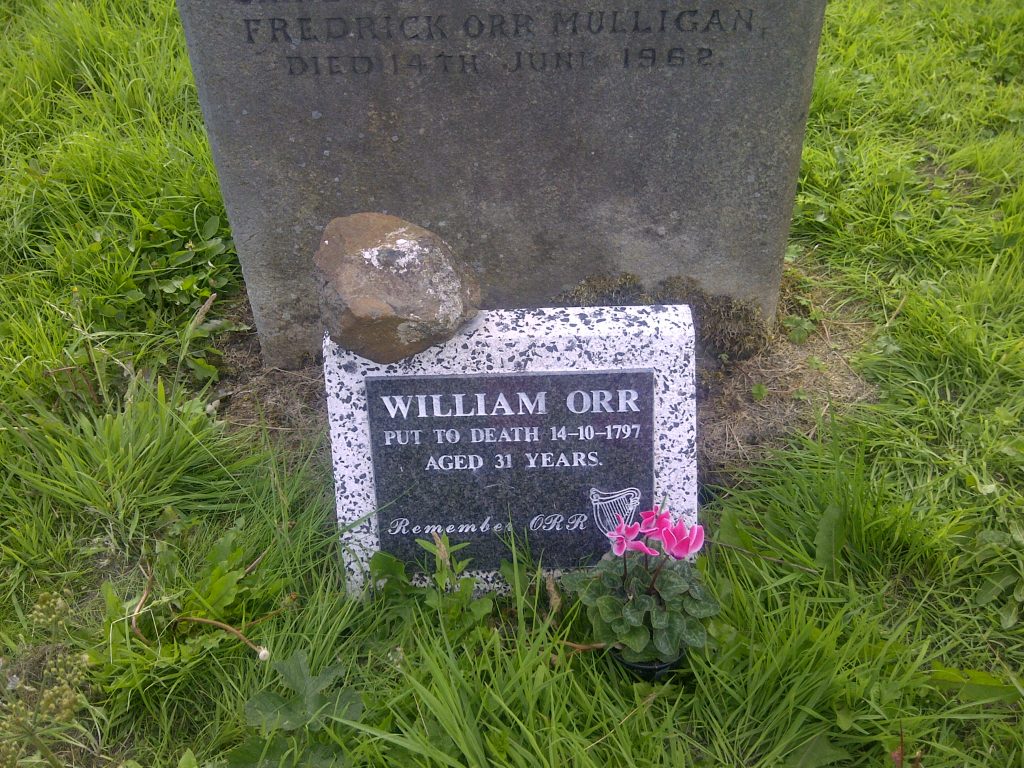Patrica, Orr, who worked at RNIB at the same time as me, told me about an Irish ancestor of hers, William Orr, who was convicted and hanged for sedition in 1797. It was quite a famous trial and I used it as the inspiration for the trial scene near the end of my Novel, Darkness Falling.
His execution at the time was described as “judicial murder” and led to the rallying cry “Remember Orr” during the 1798 rebellion. Pat was sufficiently moved by his story to track down his grave and the family then erected a new headstone.

Orr was accused of administering the United Irish Oath to a soldier named Hugh Wheatly, an offence which had recently been deemed a capital charge under the 1796 Insurrection Act. Wheatly, who subsequently went insane and is believed to have committed suicide, made an affidavit before a magistrate admitting that he had sworn wrongly against Orr. Two of the jury also made depositions stating that they had been “induced to join in the verdict of guilty while under the influence of drink”; while two others swore that they had “been terrified into the same course by threats of violence.”